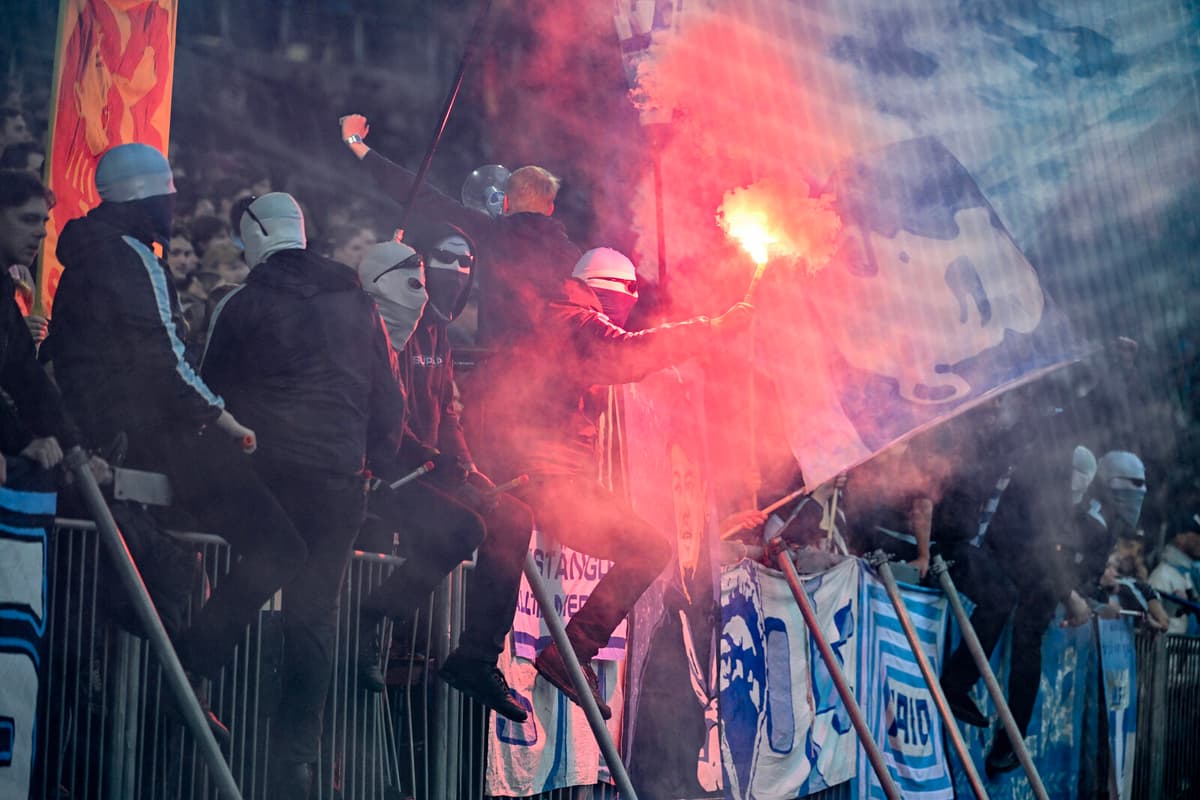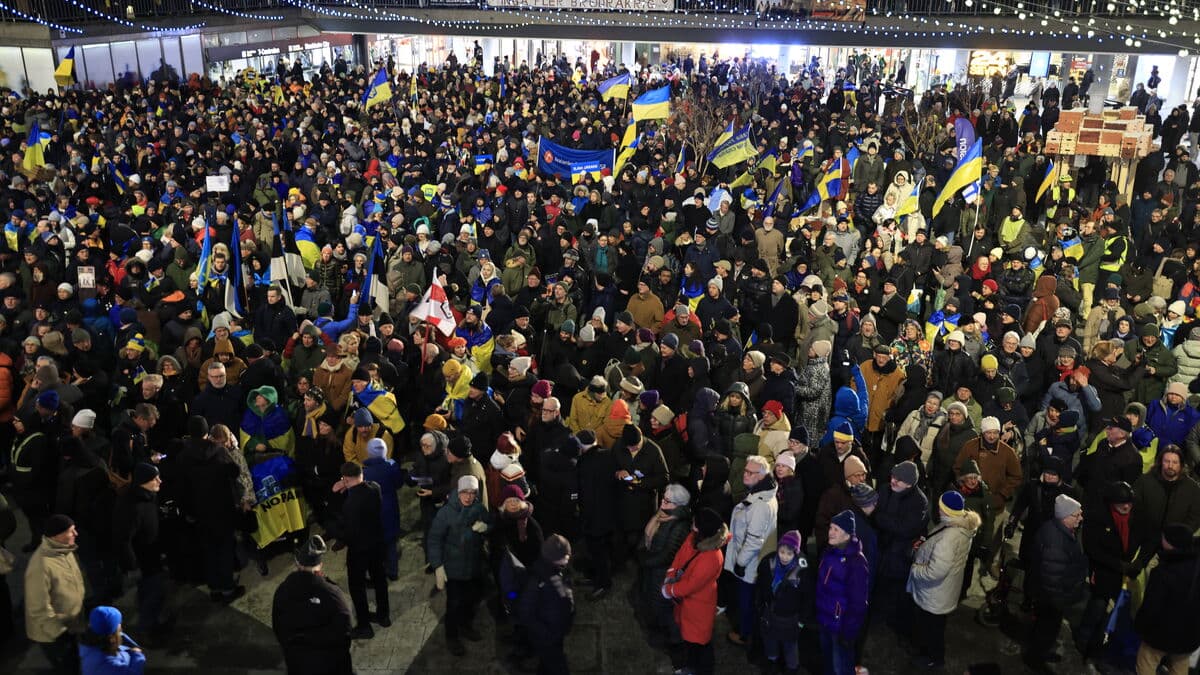The Malmö prosecutor Henrik Nordquist has driven several high-profile cases against football supporters in recent years. He sees a clear line in the special investigation for safer sports events, which was presented on Monday.
One wants to build on the exclusion strategy. One wants to exclude individuals who misbehave, says Deputy Chief Prosecutor Henrik Nordquist, who emphasizes that he is not speaking on behalf of the Prosecution Authority when he assesses the investigation's proposals.
"Will be felt"
A number of penalty enhancements are included in the proposal. The maximum penalty is proposed to be one year's imprisonment for example for possession and use of pyrotechnics, throwing objects onto the pitch, and masking.
The big difference when it's one year instead of six months is that it opens up a range of different coercive measures. One can, for example, be deprived of liberty due to this, says Henrik Nordquist.
For serious pyrotechnic offenses, imprisonment is proposed for at least six months and up to two years.
If you smuggle in x number of fireworks and get caught – suddenly it's six months' imprisonment for someone who otherwise behaves with a job and has a family, it will be felt by that person, says Nordquist.
The question is, however, how the risk of harsher penalties will be received by the supporters.
Will this lead to people holding back or will it lead to more confrontations between the authorities and supporters? I hope it will have a deterrent effect, but the result will have to be evaluated.
It is also proposed that entry bans as a general rule should be imposed for one year. Furthermore, the investigation wants other crimes – which cannot be said to be directly aimed at disrupting order and safety – to lead to entry bans to the arenas. For example, drug offenses.
When is it a crime?
If the police work effectively with this, it will result in a large number of entry bans, says Henrik Nordquist.
The investigation also wants attempts and preparations for crimes against pyrotechnic bans – as well as preparations for crimes against masking bans – to become illegal.
The question is where the boundaries will go. As an adult, I can walk around with distress signals that are not subject to permission, it's normally not a crime. If I walk in a march towards a match without using it and without intending to go to the match – is it then a crime?
If this is not clear in the preparatory work for the law, there is only one way to go for the prosecutors.
Then we'll have to prosecute people to get guidance from the court, says Henrik Nordquist.
+ A new law that would simplify the sharing of personal data and camera material to identify individuals who commit crimes at the arenas.
+ A special penalty scale for "the most serious pyrotechnic offenses" with imprisonment for at least six months and up to two years.
+ Criminalization of attempts and preparations for crimes against pyrotechnic bans as well as preparations for crimes against masking bans.
+ That "all types of crimes" committed at an event "as a general rule" should lead to entry bans – "it should in principle be sufficient with a single crime for entry bans to come into question".
+ That attempts to violate entry bans are criminalized, with a penalty scale of up to one year's imprisonment.






